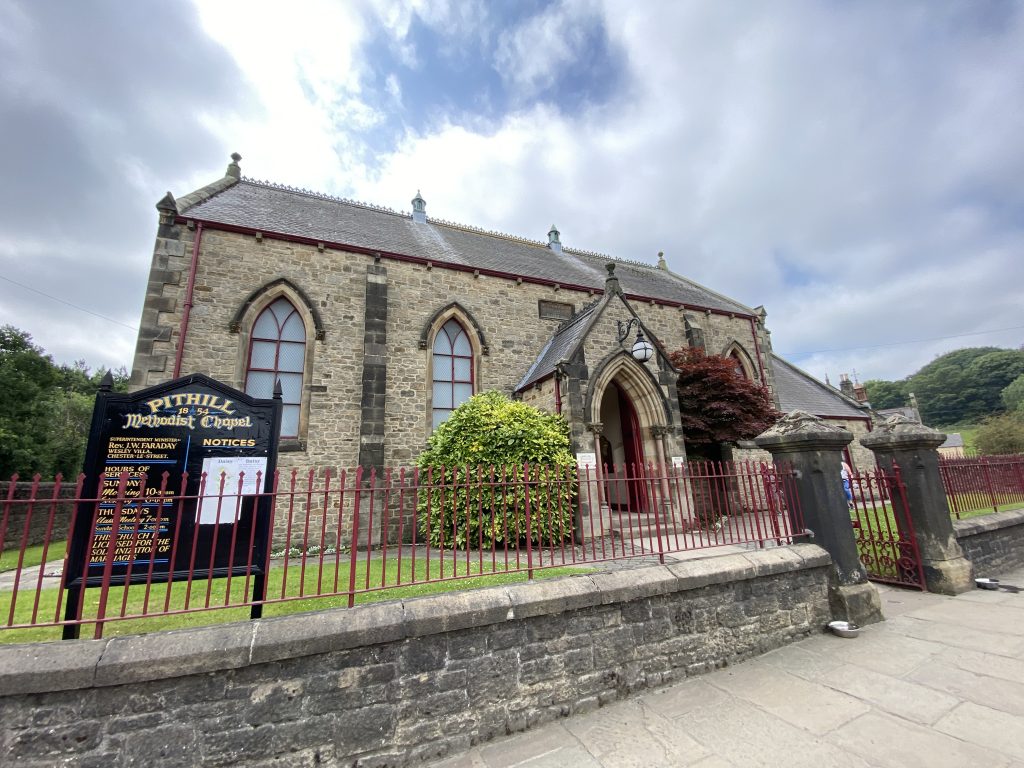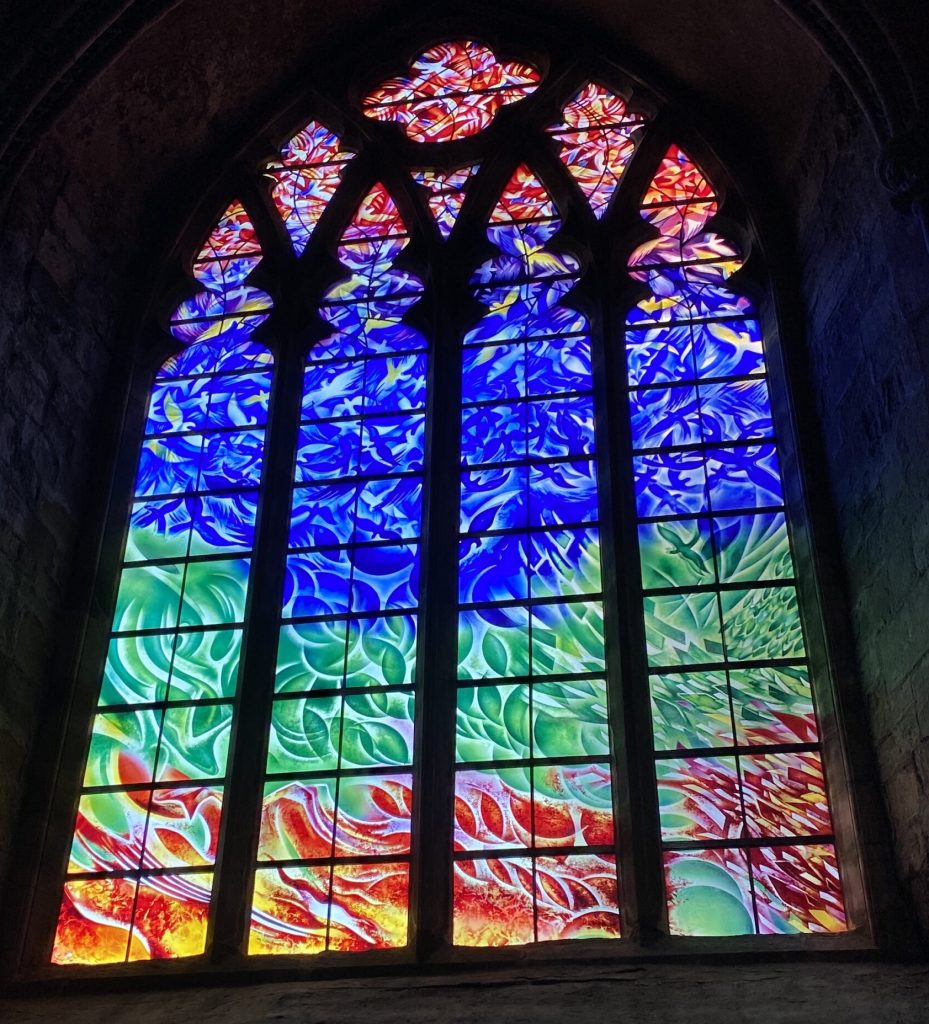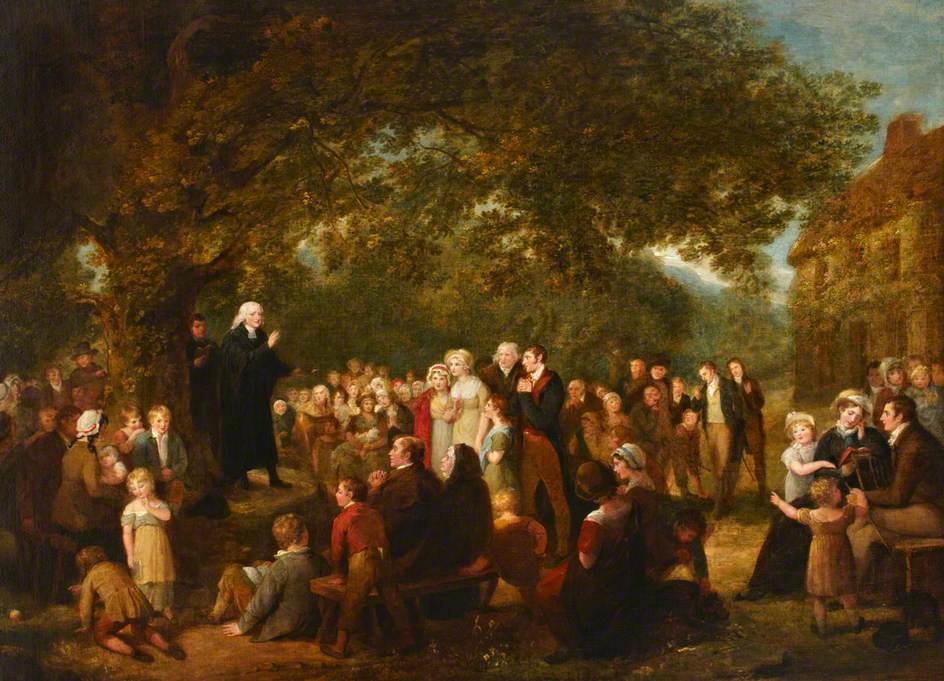This is taken from a talk I was asked to give at church one Sunday morning. I’ve taken my notes from then and rewritten them into a blog post, making some changes as relevant. Since I was studying when I started the blog, I thought now I’ve finished this would be a good place to restart.
Why did I study Church History?
I started this blog when I was partway through my MA in church history. I’d done my undergrad degree in Religious Studied back in the ’80s but on graduating had looked for a job, got married, and started a family. Looking back, I doubt that I would have studied successfully at this point. However, 30 years later I found the chance to study a subject that combined two of my passions faith, and history, in an academic way that would challenge me but also give me the opportunity to see what aspects had been central to Christianity all the way through, what had changed and why, to see how worship developed, to see why current churches have the practice and beliefs they do and where that has come from. I grabbed the opportunity with both hands.

What did I Study?
I did a methodology course, looking at how to study Church History, two courses in early Christianity, two in the ‘modern’ church, and my dissertation.
When studying methodology, for the assessed assignment I went back to my roots and looked at how John Wesley had been studied over the last 30 years. This was the period set for the assignment, but I also found it ideal because it was the length of time, I had been outside of academic study.
My two early Christianity courses were ‘Early Christian writings outside of the New Testament’ and ‘Formation of the NT Canon’. This gave me the chance to study people like Clement of Rome, Ignatius of Antioch, and documents like the Didache. My essays concentrated on the presentation of the Eucharist in the documents studied and on the four gospels as canon.
Moving forward from there to my favoured period, I studied a course called ‘Revival and Reform’ which looked at revival and reform in the church …what a shock! It concentrated mainly on the US and the UK from around 1700 to 1900 (there were specific dates, but I can’t recall them now.) My assignment for that course looked at how revival was defined and how it evolved over time. The final taught course I did was ‘Christianity in the 20thC’ and for my assignment I looked at Pacifism before and after the Second World War, specifically looking at three pacifist leaders, Dick Shepard, Donald Soper, and Bruce Kent.
The final part of the course was my dissertation which I wrote by accident and was about Margaret Fell, one of the early Quakers who was called ‘the nursing mother of Quakerism’ and later married George Fox.
What did I learn that is relevant to me as a Christian?
Ah, well that is a different question. I certainly learned that the questions I had been asking were only the tip of the iceberg. I also went through personal changes during the time I was studying which will also have affected how I looked at things, moving house, and then after a while changing churches for instance. With everything I’d been studying, all the different people I’d been reading, both historians and the Christians I studied, I found new ways of looking at situations, a widening of my perspective, and yet when I was asked to sum up my learning for the church three things stood out to me.

- Centrality of Jesus.
I think this is by far the most important thing. In every period I studied everything always came back to Jesus. In worship, in belief, in experience, in practice, it was Jesus that drew people. Right from the start, the church expected to experience the resurrected Jesus in worship. The whole worship experience centered around the eucharist, around rehearsing what Jesus had said and done and sharing bread and wine, sometimes a whole meal. Their message to the world was about Jesus, from the earliest texts, Paul’s letters, right through the early church and beyond, they preached Jesus and met with Jesus. The first part of the New Testament that was treated as scripture was the gospels. They were written for different reasons, for different groups, but it is likely that their beginning was found in eucharistic worship, in the retelling of the Jesus story. The letters of Paul were written earlier and circulated individually, but the first texts collected and bound together in codex or book form and treated as having scriptural authority were the four gospels. Collections of letters were added later. The gospels were the most important documents. Jesus was and is the centre of faith and worship.
- Vastness of God’s grace.
I’ve studied different people, in different times, different places, different times, in the east and the west Catholic, Protestant, Orthodox, Dissenter, all types and flavours and Christianity. I’ve looked at those who worship in ways similar to myself and those who are vastly different. I’ve looked at the New Testament; at the struggles and arguments in the early church; at the development of belief and practice; at the growth of different churches, different emphasis, different beliefs over non-essentials, and over deciding what the essentials are. Through all that I’ve read accounts of people’s personal faith, their own search for God within that time, place, belief, and have seen how all can encounter God. God’s grace is for all, not confined to a small sect who finally got it right. Catholic saints, Evangelical converts, Convinced Quakers, first-century bishops, they all bring their own story to the larger story of the vastness of God’s grace.
- No cookie cutter Christians.
I’ve long thought that God made us all unique for a reason. Looking at even one thing, like revival, we can see God taking delight in using each person’s uniqueness. The skills and gifting that people had and how God used those led to different revivals happening in different ways. Edwards was pastoral, with a heart for his local community. He spent time praying for his church, preparing them, preaching to their needs, and getting the local youth to meet. When a crisis happened, he was able to seize the moment and preach the sermons that led people to thoughtful repentance. The revival in his church was slow, with people realizing the burden of sin, and carrying that before coming to a knowledge of grace. It was not an overnight response to a single sermon. Like Edwards, it was a thoughtful revival, a pastoral revival.

Wesley was a preacher, a teacher, and an organizer. The revival he saw was one where people responded to preaching and he then trained preachers and teachers to follow up and teach those who responded in the Methodist class meetings. He was dedicated to learning, to preaching, to prayer, and expected the same from his preachers. This was reflected in the growth of Methodism.
Whitfield was a publicist and an actor in his youth, and he ensured that when he was going to a town to preach the newspapers not only knew and told people but carried stories of what happened at the previous places he preached, ensuring that there was an expectation and he was flamboyant in his retelling of bible stories.
Finney was systematic, and he taught revival at Bible college as a system, a way to preach, how to prepare yourself, prepare the congregation, what to preach, how to deal with those who responded, etc. It was Finney who introduced ideas like a penitent or anxious bench and response cards.
All these very different people were used by God as they were, with their uniqueness and characteristics being an integral part of how they were used.
Storytelling is often seen as a weakness in academic history, but I have always thought that story is important. Everyone has a story, but many of those stories are missed. We need all the stories but women, the poor, those in need, those of a different colour or race, those not in leadership, those not in the in-crowd, are sometimes systematically, sometimes simply because of the amount of history are often ignored and written out. To relate to each other, and to reflect God we need all our stories, not just those that fit a specific cookie cutter.
TL:DR
Studying Church History made me think about what is important, about what I’ve been taught, and made me evaluate what I can do. However, in the end, it was not about academics, not about theology, not about getting every little detail of faith and practice correct. I discovered afresh that faith is about our relationship with God, with each other, and most of all about Jesus. I was struck by how much of God there is, by how we can’t pin Christianity down to a specific narrow set of doctrine; a certain type of practice; a fundamental, catholic, evangelical, orthodox, charismatic, liberal, progressive flavour of faith because we will always find God working outside of any parameters we set. I rather think God likes being outside of our parameters, that’s where we find grace.


How nice to see you posting again! Your MA sounds very interesting. I am sure you have posted bits about it on Facebook but it is so easy to miss things there. I would be interested to read your thoughts on 20th century pacifism, if you’re willing to share them, as some of my family were involved in the movement.
I’ll dig out my essay and have a look at what I might be able to write. I know that as I’ve got older and looked more at Quakerism, at Jesus, at politics, at capitalism, and at life, I’ve become much more pacifist myself.